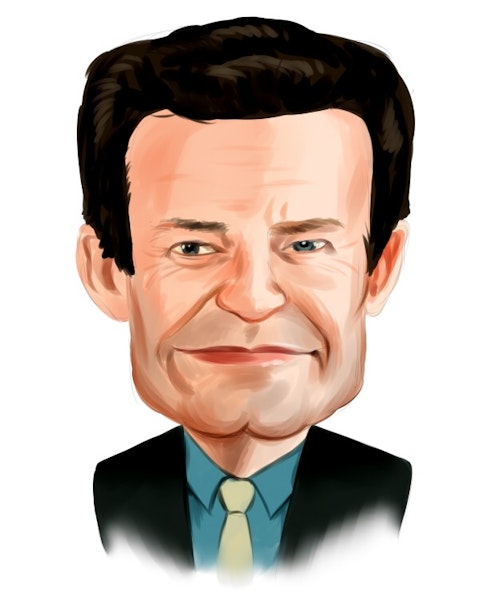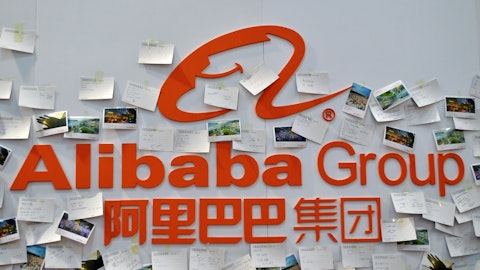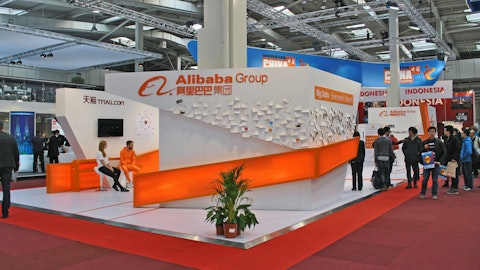Although the masses and most of the financial media blame hedge funds for their exorbitant fee structure and disappointing performance, these investors have proved to have great stock picking abilities over the years (that’s why their assets under management continue to swell). We believe hedge fund sentiment should serve as a crucial tool of an individual investor’s stock selection process, as it may offer great insights of how the brightest minds of the finance industry feel about specific stocks. After all, these people have access to smartest analysts and expensive data/information sources that individual investors can’t match. So should one consider investing in Baidu, Inc. (NASDAQ:BIDU)? The smart money sentiment can provide an answer to this question.
When it comes to Baidu, Inc. (NASDAQ:BIDU), hedge funds tracked by Insider Monkey’s database were bearish on the Chinese search and video giant in Q3, as a net total of 14 hedge funds sold off their BIDU holdings. Anthony Bozza‘s Lakewood Capital Management was not one of them, raising its stake by 12% to 1.53 million shares, with Baidu being its top stock pick. In the fund’s Q2 investor letter, Lakewood shared its updated thoughts on several of its long and short positions, including Citigroup Inc. (NYSE:C), Axon Enterprise, Inc. (NASDAQ:AAXN), Apollo Global Management, LLC (NYSE:APO), AeroVironment, Inc. (NYSE:AVAV), and Baidu, Inc. (NASDAQ:BIDU), stating that the latter could hit $415 per share by 2020, more than double its current price.
“In 2020, we believe Baidu’s core business will generate approximately $16 of earnings per share. At 20x this estimate (a conservative multiple given the attributes of this business), the core search and newsfeed business would be valued at $320 per share. By the end of 2019, we forecast Baidu’s net cash position plus its public stakes in iQiyi and Ctrip (net of a 25% discount) will amount to $95 per share. Adding this to our value for the core business equates to a total stock price of $415 per share, nearly 60% above current levels, in less than two years,” the fund wrote in its investor letter.
To most shareholders, hedge funds are perceived as worthless, outdated financial vehicles of the past. While there are over 8,000 funds trading today, our researchers hone in on the moguls of this group, approximately 700 funds. It is estimated that this group of investors have their hands on the lion’s share of the smart money’s total asset base, and by tracking their finest stock picks, Insider Monkey has formulated several investment strategies that have historically outstripped the market. Insider Monkey’s flagship hedge fund strategy defeated the S&P 500 index by 6 percentage points per year since its inception in May 2014 through early November 2018. We were able to generate large returns even by identifying short candidates. Our portfolio of short stocks lost 26.1% since February 2017 even though the market was up nearly 19% during the same period. We just shared a list of 11 short targets in our latest quarterly update.

How have hedgies been trading Baidu, Inc. (NASDAQ:BIDU)?
At Q3’s end, a total of 53 of the hedge funds tracked by Insider Monkey held long positions in this stock, a 21% drop from one quarter earlier. Below, you can check out the change in hedge fund sentiment towards BIDU over the last 13 quarters. With hedge funds’ capital changing hands, there exists an “upper tier” of noteworthy hedge fund managers who were adding to their stakes substantially (or already accumulated large positions).

More specifically, First Pacific Advisors LLC was the largest shareholder of Baidu, Inc. (NASDAQ:BIDU), with a stake worth $505.5 million reported as of the end of September. Trailing First Pacific Advisors LLC was Fisher Asset Management, which amassed a stake valued at $382.6 million. Cantillon Capital Management and Lakewood Capital Management were also very fond of the stock, giving the stock large weights in their portfolios.
Because Baidu, Inc. (NASDAQ:BIDU) has experienced a decline in interest from the entirety of the hedge funds we track, it’s safe to say that there were a few fund managers that slashed their positions entirely heading into Q3. Interestingly, Andreas Halvorsen’s Viking Global said goodbye to the largest position of the “upper crust” of funds watched by Insider Monkey, totaling close to $216.5 million in stock. Matt Sirovich and Jeremy Mindich’s fund, Scopia Capital, also said goodbye to its stock, about $123.4 million worth. These bearish behaviors are important to note, as aggregate hedge fund interest fell by 14 funds heading into Q3.
Let’s check out hedge fund activity in other stocks similar to Baidu, Inc. (NASDAQ:BIDU). We will take a look at NextEra Energy, Inc. (NYSE:NEE), Petróleo Brasileiro S.A. – Petrobras (NYSE:PBR), Sony Corporation (NYSE:SNE), and Vale SA (NYSE:VALE). This group of stocks’ market caps are closest to BIDU’s market cap.
| Ticker | No of HFs with positions | Total Value of HF Positions (x1000) | Change in HF Position |
|---|---|---|---|
| NEE | 32 | 1164363 | 1 |
| PBR | 28 | 2056204 | 0 |
| SNE | 27 | 709311 | 3 |
| VALE | 35 | 2585315 | 3 |
As you can see these stocks had an average of 31 hedge funds with bullish positions and the average amount invested in these stocks was $1.63 billion. That figure was $4.05 billion in BIDU’s case. Vale SA (NYSE:VALE) is the most popular stock in this table. On the other hand Sony Corporation (NYSE:SNE) is the least popular one with only 27 bullish hedge fund positions. Compared to these stocks Baidu, Inc. (NASDAQ:BIDU) is more popular among hedge funds. Considering that hedge funds are fond of this stock in relation to its market cap peers, it may be a good idea to analyze it in detail and potentially include it in your portfolio.
Disclosure: None. This article was originally published at Insider Monkey.





